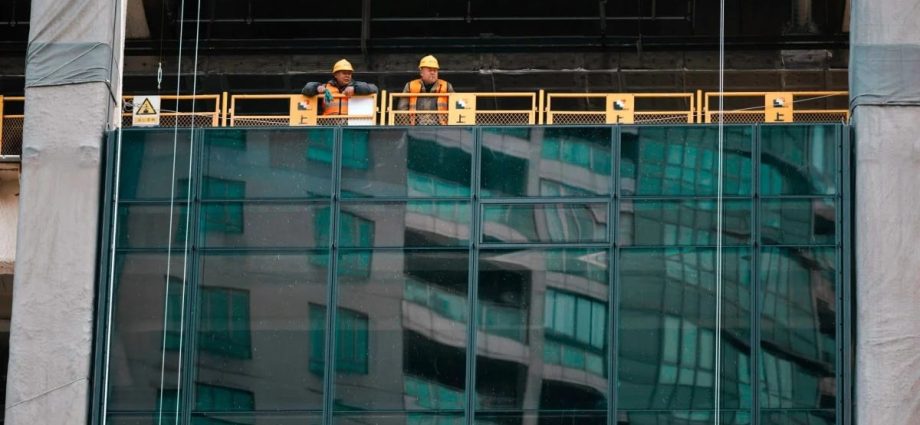
“As far as the policy implications, (policymakers) are caught between a rock and a hard place,” said Stephen Innes, managing partner of SPI Asset Management in Bangkok.
A particular X factor, he said, is whether Donald Trump wins a second term as US president in November and heaps additional pressure on Chinese exports, as he did in his first term.
China’s leadership pledged at their central economic work conference in December to orchestrate a variety of pro-growth policies and ramp up their coordination, including that of non-economic departments, to deliver much-needed economic stability in a time of considerable uncertainties and headwinds.
“In response to the weakness, investors expected new stimulus to support the shaky economy,” said Harry Murphy Cruise, an economist with Moody’s Analytics, referring to hesitant household spending, a long bout of deflation, and a “retreat” in the property sector.
“That (stimulus) hasn’t come, and investors are now pulling funds to put into safer bets.”
Over the past few decades, China has relied on debt-fuelled infrastructure spending by local governments to achieve rapid economic growth, but analysts contend that such a development model is looking less sustainable.
The Communist Party, meanwhile, has tightened its control over economic management, as well as the financial sector, in a bid to ensure that funds are being channelled to support the “real” economy.
“From 1994 to now, local government financial difficulties have become common, and the problem persists every year. The root cause lies in the boundary between the government and the markets,” Luo Zhiheng, chief macroeconomic analyst with the Yuekai Securities Research Institute, said last week at an event arranged by a Shanghai-based think tank, the China Chief Economist Forum. His comments were published to his personal blog on Tuesday (Jan 23).
“Therefore, for 2024, the fiscal balance and expenditure situation is far from straightforward, and it will still test the government’s financial-management capabilities” Luo said.
Luo added that authorities need to manage expectations more proactively, and that measures must be introduced “promptly and decisively”.
But he also acknowledged that Beijing’s fiscal measures may be “less than what the market expects”, despite its pro-growth stance.
China’s gross domestic product (GDP) target for 2024, together with the fiscal deficit ratio, local bond quota and unemployment control target, will be officially approved and released in March at the annual gathering of the national legislature, the National People’s Congress.
Markets will closely watch the event to discern whether any strong measures will be taken, as China has struggled in its post-pandemic recovery, with increasing economic volatility.

